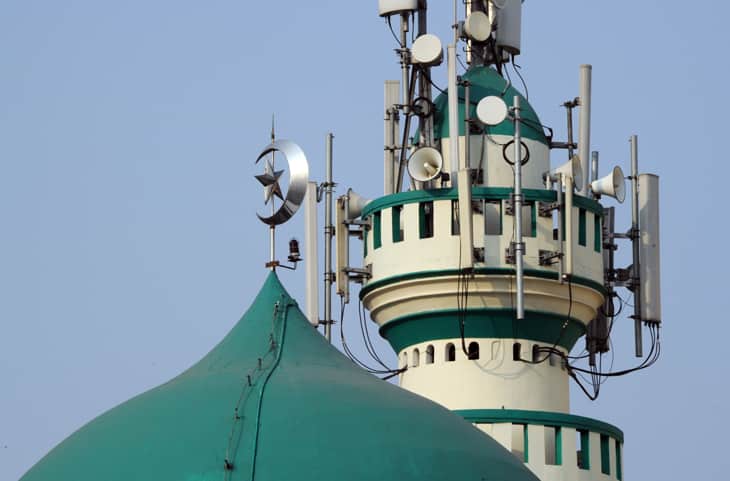Saudi Arabia—home to Islam’s two holy mosques—has limited the use of loudspeakers in mosques—a move that could set an example for other countries as well.
According to the Saudi Arabia’s Ministry of Islamic Affairs, loudspeakers can be used only for Azan and Iqamat.
Azan is the first call for prayer, while Iqamat is the second call for prayer, indicating the Imam has taken his place facing the holy Kaaba, and that the prayer is about to commence.
The Saudi Minister of Islamic Affairs, Sheikh Abdullatif bin Abdulaziz Al Sheikh, issued the circular last week telling mosque authorities to ensure that the volume “does not exceed one third of the full volume of loudspeakers", reports Saudi Gazette.
الفتوى الشرعية بقصر استعمال مكبرات الصوت الخارجية في المساجد والجوامع على رفع الأذان والإقامة. pic.twitter.com/VrbganxX0b
— وزارة الشؤون الإسلامية 🇸🇦 (@Saudi_Moia) May 23, 2021
Use of external loudspeakers at mosques to be restricted to Adhan and Iqamat
The kingdom has been concerned at the use of external speakers during prayers, which could affect the vulnerable, the elderly and young children in the vicinity. It also addresses the problem of loudspeakers interfering with prayers held in nearby mosques.
The order said the ruling was based on Islamic law and on the Prophet, Mohammed’s saying that even while worshippers are praying, they should not harm or cause any inconvenience to each other through loud recitations during prayer.
It stressed that the imam’s voice must be heard by all inside the mosque during prayer, and that there was no need for him to be heard in neighbouring houses or outside.
"In addition, reading the Quran on external amplifiers is disrespectful to the Quran when it is recited loudly using external loudspeakers while no one is listening to and pondering its verses," the circular clarified.
This is in implementation of the jurisprudential (Fiqhi) principle, “Do not harm others, nor should others harm you.” The circular is also in conformity with the religious edict (fatwa) by the late religious scholar Sheikh Muhammad Bin Saleh Al-Othaimeen that external loudspeakers should not be used except for Adhan and Iqamat-ul-salah.
The order warns against penalizing those who violate it.
This is not the first time the Saudi ministry has discussed loudspeakers in mosques in the country. The minister of Islamic affairs had previously asked mosques to reduce the use of loudspeakers during the month of Ramadan in 2019.
Saudi Arabia has more than 98,800 mosques, including the most significant mosques in Islam, the Grand Mosque in Makkah and the Prophet’s Mosque in Madinah.
In India, environmental activists have called for restricting the use of loudspeakers, arguing that religion is not a ground to violate noise rules. Few states like Uttar Pradesh and Karnataka have issued orders about the use of loudspeakers in mosques and other religious places.




















